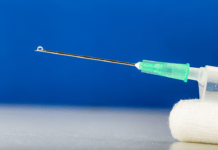I was recently offered a job with more pay and good benefits. However, the appointments are only 45 minutes, except for SRP. Also, the equipment, such as the ultrasonic, are old. The office is pretty laid back, and the people and doctor are very nice, unlike my current, very well-equipped office. I did the working interview, and I felt like I didn’t have enough time. The other longtime hygienist was completing patients in 25-30 minutes. I am known to be very hard on myself, so can someone give me their thoughts on doing proper cleanings, including a doctor exam, in 45 minutes?
This is a tough one — nice people and a laid back office, but old equipment and you feel rushed. I’ll start with the appointment time. While I never want to speak for other hygienists, I have found there are roughly three categories when it comes to appointment times. Some hygienists have no problem treating patients in 45 minutes. Others can make 45 minutes work and get everything done, but they would prefer a bit more time. Then there’s some who feel rushed and don’t feel like they are giving thorough care with only 45 minutes.
I fall into the third category and feel rushed, which stresses me out. After working at an office that gave me 30 minutes for patient care with the promise of an assistant helping me (which never happened), I decided I would never work at an office that gives me less than 60 minutes, EVER. It was my first permanent position out of hygiene school, and I had no idea what I was getting myself into. Of course some patients can be completed in less than 1 hour due to excellent home care, however, not all patients have excellent home care.
Here’s my argument against shortened appointment times…
The Journal of Dental Hygiene did a breakdown of a perio maintenance appointment; see Page 94, Table V. Notice the time needed ranges from 1 hour and 5 minutes to 1 hour and 43 minutes, with an average of 1 hour and 24 minutes needed. Some doctors may think squeezing another patient into the day increases production. I would argue it actually does the opposite. If a hygienist does not have the time to explain the need for treatment and conduct thorough education, the office’s bottom line will suffer. Further, both the doctor and hygienist could be setting themselves up for a malpractice suit. A rushed hygienist can lead to a less thorough medical history, failure to detect oral pathologies, such as periodontal disease and oral cancer, cause injury to the patient (or themselves), write less than thorough chart notes (which are legal documents), and this list could go on. Hygienists have been sued for these mistakes. Being rushed all the time also didn’t give me time to be a team player and help my co-workers as much as I really wanted to either.
Another important point about shortened appointments is patients notice when their care is being hurried through and isn’t thorough. This hurts patient retention and referral rates. At the office I worked at with short appointments I had a patient stop me and tell me I was moving so quickly it was making her anxious and she didn’t think she could continue her appointment. To put it mildly, I felt horrible when she said this. It really hurt me to know I caused her anxiety, and at the same time, it was eye-opening about just how much patients notice things.
Short appointment times aren’t just a disservice to the patient; they can be hard on you physically and mentally as well. For me, being rushed and stressed out all of the time because of short appointments, I became resentful about my career choice. I was mentally burnt out and was in physical pain. My anxiety over going to work is like nothing I can describe. Not only was I miserable, I felt horrible about the care I was providing. Patient care matters and you have to sleep at night knowing you did the best for the patients you saw. I don’t mean to go on a rant or scare you but shortened appointment times really get me infuriated. I mean, what steps would a doctor cut out of their crown prep if their appointment time was shortened? No steps can be left out, right? The same logic applies to hygiene appointments.
The question you have to ask yourself is if you feel you can provide excellent patient care with the amount of time this office gives? Then, listen to your gut when it comes to deciding to accept this job. It’s tough because we need to work to put food on the table, but don’t lower your patient care standards to do so. The other question is, would the doctor be open to allowing patients to be scheduled for a little bit longer? You never know unless you ask and explain your reasoning for the question and suggestion.
Now on to the issue of old equipment. The question you have to ask yourself here is, even though the equipment is old, is it still functioning properly and are you able to treat patients to your standards with it? Before accepting the job, I would suggest asking about how often instruments are replaced. Without properly functioning equipment and instruments, again, this can take a toll on your body and hinder patient care quality.
The answers to these questions may help you decide on whether to take this job or not. Like I mentioned before, listen to your gut feeling. The grass isn’t always greener on the other side, and sometimes you have to weight what’s most important to you and compromise. Just don’t compromise on the things which will not make your situation better. I wish you the best of luck!
SEE ALSO: Ask Kara RDH: Should I Stay at My Current Office or Move On?
DON’T MISS: Dental Job Interviews: It Goes Both Ways













